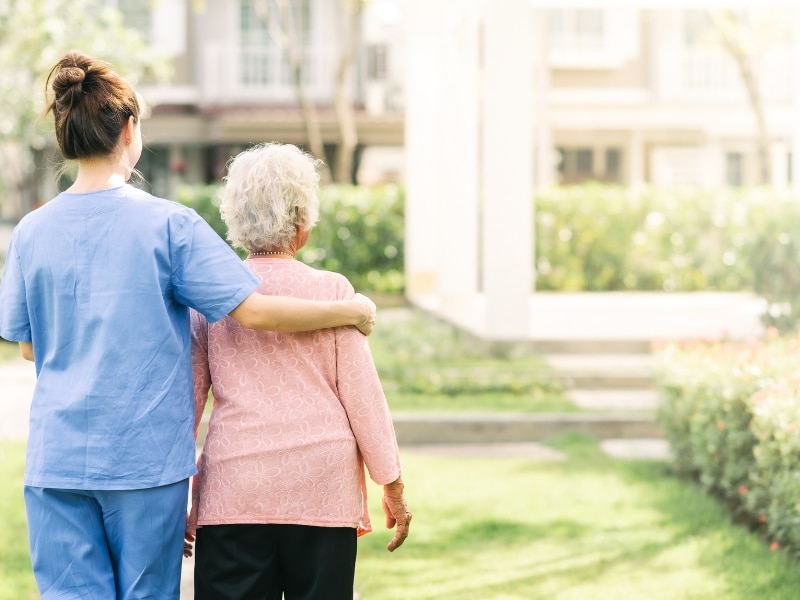As people age, comfort becomes more than a luxury — it becomes a vital part of daily well-being. In home care, comfort isn’t just about physical ease; it’s also about emotional security, familiarity, and being treated with dignity. For families seeking support in Sydney, understanding what makes care comfortable helps ensure better outcomes. From the way carers speak to how routines are managed, comfort deeply affects health, independence, and happiness. This article explores how thoughtful home care can improve the lives of older adults and what practical steps you can take to make your loved one feel truly at ease.
What makes aged care feel truly comfortable at home?
Comfort isn’t created through one single feature — it’s a combination of respectful practices, personal touches, and flexible care. The more a person’s identity is reflected in their environment, the more grounded and valued they feel. Here are the key elements that create genuine comfort in home settings:
- Respectful daily routines: Familiar morning and evening habits foster emotional safety and give older adults a sense of control.
- Flexible care plans: Adjusting schedules and responsibilities to suit personal preferences supports autonomy and prevents frustration.
- Meaningful environments: Photos, music, and décor that reflect someone’s identity help them feel anchored and understood.
- Open communication: Calm, patient conversations build trust and reduce anxiety, especially during personal care.
- Care that feels natural: When carers respect routines and preferences, the experience feels like home, not clinical.
Making small shifts in how care is delivered can be the key to discovering ways to make home care more comfortable for older adults without major upheaval.
Why is home care comfort so important for mental health?
Mental health often hinges on emotional safety — something that comfort can directly support. When older adults feel safe and understood, they’re more likely to engage, relax, and enjoy everyday life. This effect is especially important for individuals living with cognitive conditions. Here are the mental health benefits linked to a comforting home care environment:
- Lower anxiety levels: Staying in familiar surroundings limits stress triggers, especially for those with memory challenges or sensory sensitivity.
- Increased emotional stability: Predictable care routines can reduce mood swings and confusion, particularly in individuals living with dementia.
- Sense of identity: Being surrounded by personal items and cultural touches reinforces who someone is and what matters to them.
- Fewer behavioural issues: Comfortable environments often reduce distress responses, making life easier for both the person receiving care and their family.
This helps explain how home comfort supports people with dementia, which goes beyond physical ease, incorporating emotional cues that foster a sense of safety and understanding.
How does the home environment influence the well-being of seniors?
The home setting offers more than familiarity — it provides stability and a foundation for independence. Seniors benefit when their surroundings reflect their history, their routines, and their values. Here are the lifestyle advantages that come from receiving care at home:
- Consistency and orientation: Older adults remain connected to their neighbourhood, daily rhythms, and familiar objects.
- Improved mobility: Spaces can be adapted to fit mobility needs, reducing fall risks and encouraging movement.
- Reduced hospitalisation: Comfortable, tailored environments lower stress levels, which can help prevent health deterioration.
- Increased social connection: Loved ones visit more easily at home, helping reduce isolation and supporting community involvement.

For families managing multiple tasks, understanding and navigating domestic care responsibilities for ageing parents offers insight into balancing practical demands with emotional care at home.
Can small changes significantly improve home care comfort?
The good news is that boosting comfort doesn’t always require complex changes. Many improvements can be achieved through simple, low-cost tweaks tailored to the individual’s lifestyle. Here are the easy adjustments that have an outsized impact on comfort:
- Thoughtful lighting: Soft lighting in the evening mimics natural rhythms, which can improve sleep and reduce agitation.
- Personalised meal planning: Including cultural or lifelong favourites makes mealtime something to look forward to.
- Layout updates: Rearranging furniture to remove hazards can prevent falls and increase daily confidence.
- Stimulating activities: Arts, puzzles, or light gardening can add meaning and pleasure to daily life.
- Familiar carers: Keeping the same support team fosters trust and removes the stress of constant introductions.
Here’s a simple comparison of high-impact adjustments that increase comfort at home:
| Adjustment | Impact on Comfort | Ease of Implementation |
| Dimmer switches | Better sleep, calmer evenings | Easy |
| Non-slip mats | Fall prevention | Very easy |
| Custom activity boxes | Engagement and enjoyment | Medium |
| Slow-paced routines | Reduced stress and confusion | Easy |
| Carer continuity | Stronger relationships | Medium |
Minor tweaks can often change the tone of a day from flat to fulfilling, without needing costly upgrades.
What role do caregivers play in long-term comfort?
The caregiver relationship plays a central role in shaping day-to-day experiences. A carer’s attitude, consistency, and communication style all directly affect the person they’re supporting. Here are the caregiver traits that influence comfort over time:
- Empathy in action: Listening with patience and adjusting based on emotional cues shows older adults their voice matters.
- Consistent presence: Seeing the same faces builds rapport, which is especially valuable for people who feel disoriented easily.
- Respect for autonomy: Empowering people to make choices about meals, clothing, or schedules boosts confidence.
- Cultural understanding: Carers who understand someone’s background can connect more deeply and avoid misunderstandings.
- Advocacy and support: Good caregivers speak up for the person in their care, ensuring dignity is never compromised.
In some cases, carers enhance their approach by integrating thoughtful strategies. In addition, knowing how mindfulness supports mental health and emotional well-being can deepen the emotional quality of physical care.
How does routine impact home care comfort outcomes?
Routine isn’t about rigidity — it’s about reliability. Predictable patterns reduce cognitive load and offer emotional reassurance, especially when memory or mobility is impacted. Here are the routine-based practices that enhance day-to-day comfort:
- Predictable schedules: Knowing what’s next reduces mental strain and helps people feel in control of their day.
- Regular nutrition habits: Mealtimes that reflect lifelong preferences create familiarity and support healthy eating patterns.
- Consistent sleep and wake times: Aligning with natural rhythms helps with both mood and physical wellness.
- Hydration reminders: Timely cues to drink water prevent dehydration and support clearer thinking.
- Gentle activity patterns: Daily walks or stretches promote energy, circulation, and emotional stability.

Breaking routine too often introduces uncertainty, while consistency builds confidence and safety, even in small rituals like a favourite morning tea.
Recognising the long-term value of comfort in aged care
Comfort in aged care isn’t a short-term luxury — it’s a long-term investment in well-being. When home care is delivered in a way that feels safe, familiar, and respectful, older adults remain more engaged, healthier, and emotionally steady. Families experience less stress, knowing their loved one is cared for in a way that honours their preferences and identity. Stable care environments also reduce hospital readmissions and promote independence. For families exploring support options, it may help to find out how Montessori Care can help your family understand the many ways that comfort transforms care and lives.
